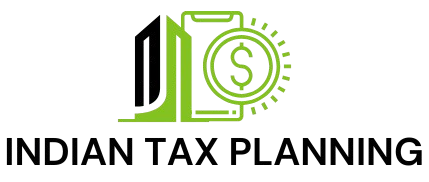🧾 Tax Planning for Salaried Employees in India – FY 2025–26
Tax planning for salaried employees is a strategic approach to reduce income tax liability while staying compliant with Indian tax laws. It involves evaluating income, expenses, and investments to structure finances in a tax-efficient manner. This guide outlines the best strategies for salaried individuals to save tax in FY 2025–26 (AY 2026–27).
📌 Step 1: Understand Income Tax Slabs – Old vs. New Regime
Choosing between the Old Tax Regime and the New Tax Regime under Section 115BAC is the first step in tax planning.
👉 New Tax Regime (FY 2025–26):
| Income Slabs | Tax Rate |
|---|---|
| Up to ₹4,00,000 | NIL |
| ₹4,00,001 – ₹8,00,000 | 5% |
| ₹8,00,001 – ₹12,00,000 | 10% |
| ₹12,00,001 – ₹16,00,000 | 15% |
| ₹16,00,001 – ₹20,00,000 | 20% |
| ₹20,00,001 – ₹24,00,000 | 25% |
| Above ₹24,00,000 | 30% |
✅ Rebate Update (Finance Act 2025):
Resident individuals opting for the new regime and having total income up to ₹12,00,000 are eligible for a rebate of up to ₹60,000 under Section 87A, resulting in zero tax liability.
👉 Old Tax Regime:
| Income Slabs | Tax Rate |
|---|---|
| Up to ₹2,50,000 | NIL |
| ₹2,50,001 – ₹5,00,000 | 5% |
| ₹5,00,001 – ₹10,00,000 | 20% |
| Above ₹10,00,000 | 30% |
✅ Rebate under Section 87A: Income up to ₹5,00,000 results in a rebate of ₹12,500 (net tax zero).
📌 Step 2: Maximize Deductions Under Section 80C
Under the old regime, you can claim a deduction of up to ₹1.5 lakh under Section 80C. Eligible investments/expenses include:
- Public Provident Fund (PPF)
- Employee Provident Fund (EPF)
- Equity-Linked Savings Scheme (ELSS)
- Life Insurance Premium (self, spouse, children)
- National Savings Certificate (NSC)
- Home loan principal repayment
📌 Step 3: Claim Health Insurance Deduction – Section 80D
Reduce your taxable income by paying health insurance premiums:
| Insured | Deduction Limit |
|---|---|
| Self, spouse & children | Up to ₹25,000 |
| Parents (<60 years) | Additional ₹25,000 |
| Parents (≥60 years) | Additional ₹50,000 |
| Preventive health check-up | Included up to ₹5,000 |
📌 Step 4: House Rent Allowance (HRA) – Section 10(13A)
If you live in rented accommodation and receive HRA, you can claim an exemption:
- Actual HRA received
- 50% of salary (metro cities) or 40% (non-metro)
- Rent paid minus 10% of salary
If you don’t receive HRA, claim under Section 80GG (least of ₹5,000/month, 25% of total income, or rent paid – 10% of income).
📌 Step 5: Deduction for Education Loan Interest – Section 80E
Interest on education loan (for self, spouse, or children) is fully deductible for up to 8 years.
📌 Step 6: Invest in NPS – Section 80CCD
- 80CCD(1): Up to ₹1.5 lakh (included in 80C limit)
- 80CCD(1B): Additional ₹50,000 (over 80C limit)
- 80CCD(2): Employer contribution – not part of 80C/1B limit
| Employer Type | Old Regime | New Regime |
|---|---|---|
| Government | 14% of salary | 14% of salary |
| Private Sector | 10% of salary | 14% of salary |
📌 Step 7: Standard Deduction for Salaried Individuals
- Old Regime: ₹50,000
- New Regime: ₹75,000 (from FY 2025–26 onward)
This deduction is auto-applied to all salaried and pensioned taxpayers.
📌 Step 8: Leave Travel Allowance (LTA)
LTA is tax-exempt for domestic travel – two journeys in a block of four years (e.g., 2022–2025):
- Airfare (economy class)
- Rail/bus fare (as applicable)
📌 Step 9: Reimbursements and Perquisites
Certain employer reimbursements are tax-exempt or partly taxable:
- Meal vouchers (e.g., Sodexo)
- Telephone/internet bills
- Uniform allowance
- Books & education expenses (if work-related)
📌 Step 10: File ITR Before Due Date
Filing your Income Tax Return (ITR) on time avoids penalties and ensures faster refunds.
✅ Final Thoughts
Whether you choose the Old or New Tax Regime, understanding available deductions, rebates, and exemptions helps in strategic tax planning. Stay ahead by planning early and filing accurately.
💼 Need Help With Tax Planning?
At Indian Tax Planning (ITP), our expert team led by CA Ankush Aggarwal can help you:
- Choose the right tax regime
- Maximize your deductions
- File ITRs on time
- Ensure compliance with zero stress
📞 Contact us at IndianTaxPlanning.in or WhatsApp us at +91-9871822710.

